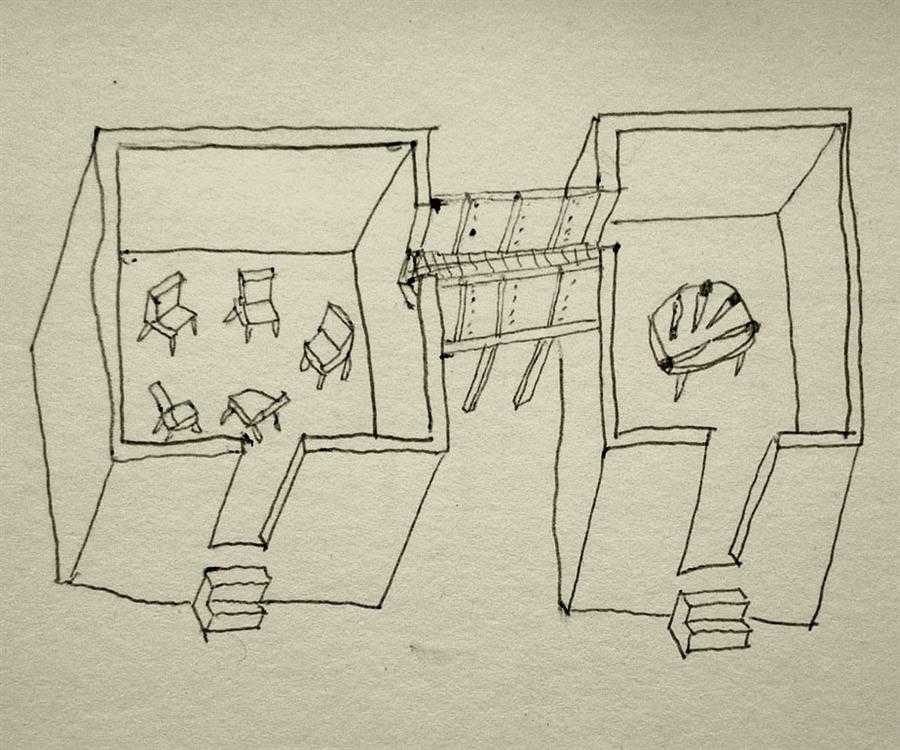Onassis Cultural Centre: Structures of Feelings - a gathering which brings together theoreticians and practitioners. Ilan Manouach (DAI, 2017) is among the contributors to the symposium as are Paul Preciado, Keller Easterling, Olaf Nikolai and others.
Structures of Feelings is part of a series of international meetings based on Raymond Williams’ classic essay on materiality and feeling. For this meeting in Athens, revenge and its entangled emotions forms the central theme in the spaces of the contemporary city. This gathering brings together theoreticians and practitioners: writers, directors, philosophers, academics, artists, architects and political thinkers.
The contemporary city can be described as a form of life where the infrastructure operates as an unforeseen factor in scale and strength; comparing it to analogous constructions of the past. In our internet age, humans reside within this infrastructure. The infrastructure makes sharing possible, supports human activities and also extends and prolongs human time, driving and regulating its rhythms, demanding adaptation and compliance to the norm. The everyday of modernity supports the creation of "a space without revenge".
The modern city was conceived as a system of norms, envisaged from the period of Ildefons Cerdà as annulling the human drive for revenge. Revenge is a narrative mode; the concepts of ancient hubris or nemesis derived from the barbarism of revenge that may also refer to the sometimes pronounced animal aspect of humanity/of being human. The prosaic character of the city is the negation of the cultures of revenge that come together with a systematic application of multiple tolerance. In this sense, the contemporary city suppresses the classical tensions of revenge and the motor of its narrative force. The ideal modern city would be a space exempt of revenge. Contemporary Athens in its days of worsening decline confronts the ending of this contemporary prosaic program of a city devoid of revenge.
Can this new condition of Athens articulate different stories related to its present hybrid character? Is the constantly growing infrastructure ready to undertake different and alternate mechanisms than the ones that modernity has imposed? To what extent will the internet and its algorithms structure the stories of tomorrow? How will the infrastructure of tomorrow undertake to dispense justice to a system of automatic revenge where the elimination of people will be detached from the meta-drama of perishing humanity? Will this era of the new city offer differential and promising modes of storytelling?
Focusing on such questions, Structures of Feelings – The Structure of Revenge will begin as a three-day interdisciplinary workshop with international theoreticians and practitioners. This workshop is scheduled to take place at Diplareios School in June 5-7, 2016. Its aim is to function as an intensive laboratory examining the theme of revenge from a variety of perspectives and exploring its contemporary relevance for the city of Athens.
The debate will culminate in a symposium open to the public and its participation, at Diplareios, on Tuesday 7 June. Parallel to the symposium, there will be an art installation related to the outputs of the workshop in Diplareios from 7 to 12 June.
Curated by: Aristide Antonas, Adam Kaasa, Yoke-Sum Wong, Christos Carras
Participants: James Bridle, Craig Campbell, Christos Chondropoulos, Angela Dimitrakaki, Keller Easterling, Karen Engle, Laura Oldham Ford, Christien Garcia, Alice Honor Gavin, Dimitris Kamarotos, Nayan Kulkarni, Michalis Konstantatos, Kimberly Mair, Ilan Manouach, Julien McHardy, Max Negrelli, Olaf Nikolai, Benedetta Panisson, Dimitris Papanikolaou, Paul Preciado, Heike Schuppelius, Yannis Stavrakakis, Vangelis Vlahos, Haris Vlavianos
Coordinated by: Pasqua Vorgia
Entrance to all the events in the “Talks and Thoughts” Cycle is free and on a first come, first served basis.
The distribution of entrance tickets begins one (1) hour before each event. Simultaneous translation is provided in the case of speakers using a language other than Greek.

